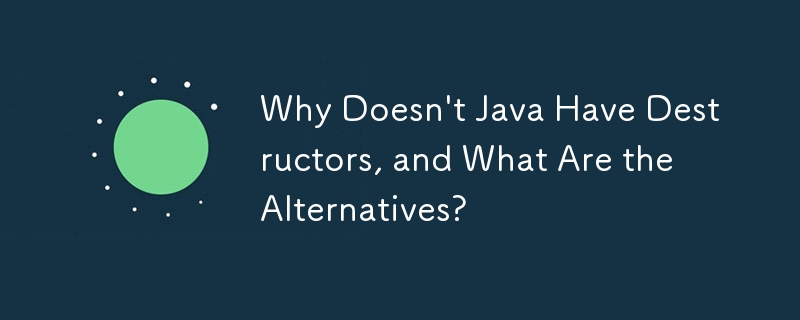

Java's Lack of Destructors and Alternative Approaches
In Java, the concept of a destructor, a method executed upon object destruction, is not explicitly defined. This arises from Java's garbage collection mechanism, which automatically deallocates memory when objects are no longer referenced.
To achieve similar functionality, Java offers the finalize() method, an inherited method called implicitly just before an object is garbage collected. However, the timing and execution of finalize() is unpredictable and varies depending on the garbage collector implementation. Therefore, it's not recommended to rely on finalize() for resource cleanup or other critical tasks.
Instead, the recommended practice is to define a close() or dispose() method that explicitly releases resources when the object is no longer needed. For example, in your case, you could create a reset() method that nullifies references to data objects, triggering their eventual garbage collection. This ensures proper resource cleanup and prevents potential memory leaks.
It's important to note that garbage collection in Java is non-deterministic, meaning that objects may not be collected immediately when they become eligible. Repeatedly entering data and pressing the reset button may result in some memory consumption until garbage collection occurs. To manage this, you could consider using reference counting or weak references to explicitly track and clean up objects when their references are no longer active.
The above is the detailed content of Why Doesn\'t Java Have Destructors, and What Are the Alternatives?. For more information, please follow other related articles on the PHP Chinese website!




